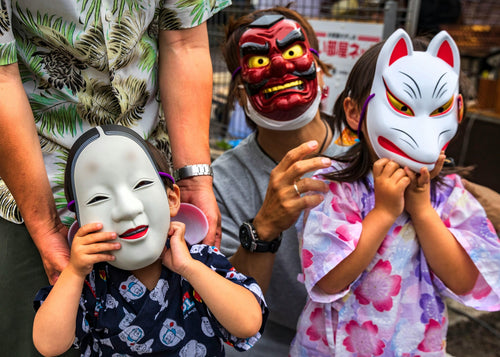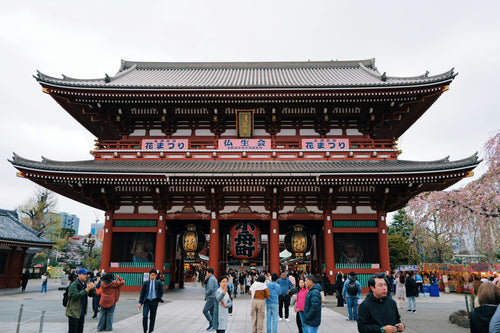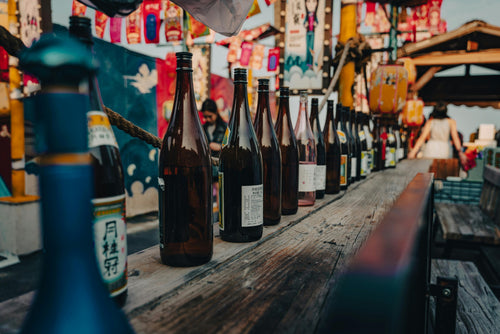
Japan Travel Guide for First-Time Visitors: Costs, Plans, & Attractions
Planning a trip to Japan for the first time? Japan is a captivating destination with its blend of tradition and modernity, world-class cuisine, stunning landscapes, and rich cultural heritage. However, navigating the essentials of travel planning—from budgeting to choosing top attractions—can be a bit daunting for first-time visitors. This guide will cover all you need to know for a memorable journey to Japan, including estimated costs, itinerary ideas, and must-see sights.
1. Overview of Travel Costs
Traveling in Japan doesn’t have to break the bank, but costs can vary significantly based on travel style and preferences. For a moderate budget, you can expect daily expenses of approximately ¥10,000–¥15,000 per person, which includes accommodation, food, transportation, and entry fees to various attractions. Japan is known for its variety of options catering to all budgets, from affordable ramen shops to Michelin-starred restaurants, budget hostels to luxury hotels.
2. Budgeting for a Japan Trip
Japan can be an affordable or luxurious destination, depending on how you plan your trip. Here’s a breakdown of typical daily expenses:
- Accommodation: ¥3,000–¥10,000 per night for budget to mid-range options.
- Food: ¥2,000–¥5,000 per day for local eats and budget dining.
- Transportation: ¥1,500–¥3,000 per day, depending on the region and type of rail pass.
- Attractions: ¥500–¥2,000 per entry, with some free attractions.
Using Japan Rail Passes or regional rail passes is recommended for travelers planning to visit multiple cities, as these passes provide unlimited rides on JR trains for a set period and can greatly reduce transportation costs.
3. Accommodation Options
Accommodation in Japan ranges from budget hostels to luxurious ryokan (traditional inns). Here are some popular options:
Hostels and Guesthouses
Hostels and guesthouses are plentiful in major cities and popular tourist areas. Many offer private rooms, shared spaces, and a chance to meet other travelers, making them ideal for those on a budget.
Business Hotels
Japan’s business hotels offer clean, simple, and affordable rooms with basic amenities. These hotels are typically located near train stations and are a convenient option for budget-conscious travelers.
Ryokan and Traditional Inns
For an authentic experience, consider staying at a ryokan. These traditional Japanese inns provide tatami mat rooms, futon beds, and often include meals. Prices can range from budget-friendly to high-end luxury.
Capsule Hotels
Capsule hotels, offering compact, individual sleeping pods, are a unique experience for budget travelers looking for a short stay or an adventure.
4. Transportation in Japan
Japan’s public transportation is world-renowned for its efficiency and convenience. Here are the primary options:
Japan Rail Pass (JR Pass)
The JR Pass is an excellent choice for tourists who plan to travel between multiple cities, offering unlimited rides on JR trains (including shinkansen bullet trains) for 7, 14, or 21 days. It must be purchased outside Japan and activated upon arrival.
Regional Rail Passes
For those exploring specific regions, regional passes can be a cost-effective alternative to the JR Pass. Each region has its own pass, such as the Kansai Thru Pass or the JR East Pass.
IC Cards
IC cards like Suica and Pasmo are rechargeable cards for convenient travel on subways, buses, and even some vending machines. They are highly recommended for city travel and can be used in major regions throughout Japan.
Local Trains and Subways
Japan’s local trains and subway networks are reliable and user-friendly, connecting travelers to popular sights within each city. Most systems have English-language signage and maps, making them easy to navigate for visitors.
5. Suggested Itineraries for First-Timers
Japan offers countless places to explore, so here are two popular itineraries for first-time visitors:
Tokyo - Kyoto - Osaka (7–10 Days)
This classic itinerary allows you to experience the bustling metropolis of Tokyo, the historic beauty of Kyoto, and the vibrant food scene of Osaka. Highlights include Tokyo’s Shibuya Crossing, Kyoto’s Fushimi Inari Shrine, and Osaka’s Dotonbori district.
Tokyo - Hakone - Kyoto - Nara - Osaka (10–14 Days)
This itinerary includes a stop in Hakone for hot springs and views of Mount Fuji, as well as Nara, known for its friendly deer and historic temples. It’s perfect for those who want a mix of city sights, cultural experiences, and nature.
6. Top Attractions and Experiences
Japan is home to numerous iconic landmarks and attractions. Here are a few must-visit spots:
Tokyo
Tokyo offers attractions ranging from the Meiji Shrine and Tokyo Tower to the bustling districts of Shibuya and Akihabara. Tokyo is a city that never sleeps, with unique experiences for every traveler.
Kyoto
Kyoto is known for its traditional temples, including the Golden Pavilion (Kinkaku-ji), Kiyomizu-dera, and the Bamboo Forest in Arashiyama. It’s a must-visit for those interested in Japanese history and culture.
Mount Fuji
Japan’s iconic Mount Fuji can be viewed from nearby areas such as Hakone and the Fuji Five Lakes. For adventurous travelers, climbing Mount Fuji during summer is a popular experience.
Hiroshima and Miyajima Island
Hiroshima’s Peace Memorial Park and Miyajima’s Itsukushima Shrine (famous for its floating torii gate) are essential stops for those interested in history and scenic beauty.
7. Food & Dining Tips
Japan’s culinary scene is world-famous, offering dishes like sushi, ramen, tempura, and much more. Here’s what to keep in mind:
Local Eats and Street Food
For affordable dining, explore local favorites such as ramen, udon, and conveyor belt sushi. Street food is also popular in areas like Osaka’s Dotonbori and Tokyo’s Asakusa, offering takoyaki (octopus balls), yakitori (grilled chicken skewers), and taiyaki (fish-shaped pastries).
Etiquette
It’s customary to say “Itadakimasu” before eating, which expresses gratitude for the meal. Tipping is not expected in Japan, and in some cases, it may be considered rude. Many restaurants have a ticket machine for ordering, especially in ramen shops, so be prepared to select your meal and pay in advance.
8. Cultural Etiquette and Tips
Japan is known for its respectful and polite society, and visitors are encouraged to follow certain customs:
Shoes
Remove your shoes before entering someone’s home, traditional inns, and some temples or restaurants. Look for a designated area to place your shoes, and use the provided slippers if available.
Public Transportation
Public transportation is generally quiet, and talking on the phone is discouraged. Keep your voice low to avoid disturbing others, and always give up your seat to the elderly, pregnant, or those with disabilities.
Onsen Etiquette
If you visit an onsen (hot spring), it’s important to wash thoroughly before entering the communal baths. Towels should not be dipped in the water, and tattoos may not be allowed in some onsen facilities.
Language and Communication
Although English is not widely spoken, many people understand basic phrases, especially in tourist areas. Simple Japanese phrases, such as “Arigatou” (Thank you) or “Sumimasen” (Excuse me), go a long way in showing respect and appreciation.
With careful planning, first-time visitors to Japan can enjoy a rich and unforgettable travel experience. This guide has provided an overview of the essential information needed for budgeting, choosing accommodations, and planning exciting activities. From Tokyo’s cityscapes to Kyoto’s ancient temples, Japan promises a blend of modern adventure and timeless culture that will leave every traveler in awe.
分享
You may also like
-

不可錯過的 10 個日本傳統節慶(祭)
日本的節日,或稱為“祭”,是對文化遺產的充滿活力的慶祝活動,以精緻的服裝、熱鬧的遊行和古老的儀式為特色。從盛大的城市活動到親密的鄉村聚會,每個節日都是獨一無二的,並植根於當地的傳統、傳說或宗教信仰。這些節日通常強調季節變化,例如春天的...
-

參觀日本的情趣酒店區:會發生什麼
日本的情趣酒店區以其獨特而迷人的隱私、創造力和奢華而聞名。雖然情趣酒店最初是為情侶提供私人休養地,但如今已發展成為日本文化和熱情好客的獨特方面。這些飯店提供主題客房、獨特的設施和令人驚訝的實惠價格,是日本夜生活的一個有趣的方面。本指南...
-

東京附近 15 處著名的寺廟和神社
東京及其周邊地區擁有許多著名的寺廟和神社,展示了日本豐富的精神和文化遺產。這些聖地通常坐落在寧靜的環境中,提供遠離喧囂城市的寧靜場所。無論您是尋求建築之美、歷史氣息,還是寧靜的反思之地,這些寺廟和神社都是必遊之地。以下是東京附近 15...
-

什麼是清酒?其製作方法及歷史
清酒是一種由發酵米製成的傳統日本酒精飲料。它在日本已有一千多年的歷史,並因其獨特的風味和文化意義而在全世界流行。在本文中,我們將探討清酒是什麼、它是如何釀造的,以及這種深受喜愛的飲料背後的迷人歷史。 本指南將帶您了解清酒的基本面,...
目前沒有相關文章。




